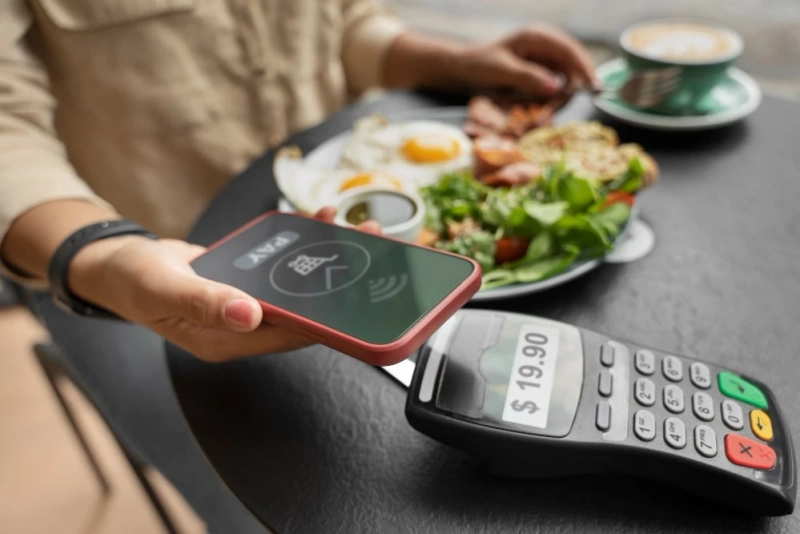Introduction
In today's dynamic restaurant industry, efficiency and customer satisfaction are paramount. Cloud-based POS systems have emerged as game-changers, offering restaurants the tools they need to streamline operations, enhance customer experience, and stay ahead in a competitive market. This article delves into the world of cloud-based POS systems, exploring their benefits, features, and implementation in restaurant settings.
Understanding Cloud-Based POS Systems
In the digital age, traditional POS systems are giving way to cloud-based alternatives, revolutionizing the way restaurants manage transactions, orders, and inventory. Unlike traditional systems that rely on on-site servers, cloud-based POS systems store data remotely, accessible anytime, anywhere with an internet connection. This flexibility enables restaurant owners and managers to monitor operations in real-time and make data-driven decisions on the go.
Advantages of Cloud-Based POS Systems
Cloud-based POS systems offer a myriad of advantages for restaurant owners and operators:
1. Enhanced Mobility
With cloud-based POS systems, restaurant staff can take orders and process payments directly at the table using mobile devices, reducing wait times and enhancing the overall dining experience for customers.
2. Real-Time Reporting and Analytics
Cloud-based POS systems provide comprehensive reporting and analytics tools, allowing restaurant owners to track sales, monitor inventory levels, and analyze customer preferences in real-time. These insights enable data-driven decision-making and facilitate business growth.
3. Scalability
Cloud-based POS systems are highly scalable, making them suitable for restaurants of all sizes. Whether you operate a small café or a large chain, cloud-based POS systems can adapt to your business needs and grow alongside your operations.
4. Cost-Effectiveness
Unlike traditional POS systems that require significant upfront investment in hardware and software, cloud-based POS systems operate on a subscription basis, eliminating the need for expensive infrastructure. This cost-effective model makes cloud-based POS systems accessible to restaurants of all budgets.
5. Increased Security
Cloud-based POS systems offer robust security features, including encrypted data transmission and secure storage protocols, safeguarding sensitive customer information and protecting against cyber threats.
6. Seamless Integration
Cloud-based POS systems seamlessly integrate with other restaurant management software, such as inventory management and accounting tools, streamlining operations and reducing manual errors.
7. Customer Relationship Management (CRM)
Cloud-based POS systems enable restaurants to build and maintain customer relationships through personalized promotions, loyalty programs, and targeted marketing campaigns, fostering customer loyalty and repeat business.
Implementing Cloud-Based POS Systems
Implementing a cloud-based POS system in your restaurant requires careful planning and consideration. Here are some steps to guide you through the process:
1. Assess Your Needs
Evaluate your restaurant's specific requirements, including the size of your operation, the volume of transactions, and your budget constraints. Choose a cloud-based POS system that aligns with your business goals and objectives.
2. Select a Provider
Research different POS providers and compare their features, pricing, and customer reviews. Look for a provider that offers responsive customer support, regular software updates, and scalability options to meet your evolving needs.
3. Train Your Staff
Provide comprehensive training to your staff on how to use the new POS system effectively. Ensure that they are familiar with key features, such as order entry, payment processing, and reporting tools, to maximize efficiency and productivity.
4. Test and Customize
Before fully implementing the system, conduct thorough testing to identify any potential issues or areas for improvement. Customize the POS system to suit your restaurant's unique workflow and preferences, ensuring a seamless transition for your staff and customers.
5. Monitor Performance
Continuously monitor the performance of your cloud-based POS system and solicit feedback from your staff and customers. Identify areas for optimization and leverage the system's reporting and analytics tools to drive business growth and success.
FAQs (Frequently Asked Questions)
How secure are cloud-based POS systems? Cloud-based POS systems employ advanced security measures, including data encryption and secure authentication protocols, to safeguard sensitive information and protect against cyber threats.
Can cloud-based POS systems integrate with existing restaurant management software? Yes, most cloud-based POS systems offer seamless integration with other restaurant management software, such as inventory management, accounting, and CRM tools, allowing for efficient data sharing and workflow automation.
Are cloud-based POS systems suitable for small restaurants? Yes, cloud-based POS systems are highly scalable and suitable for restaurants of all sizes, from small cafes to large chains. They offer flexible pricing plans and customizable features to accommodate the needs of small businesses.
How does a cloud-based POS system improve customer experience? Cloud-based POS systems enable faster order processing, seamless payment transactions, and personalized customer interactions, leading to enhanced satisfaction and loyalty among diners.
Can cloud-based POS systems operate offline? While cloud-based POS systems primarily rely on internet connectivity, some providers offer offline functionality, allowing restaurants to continue processing transactions and collecting data even in the absence of an internet connection.
What kind of support is available for restaurants using cloud-based POS systems? Most cloud-based POS providers offer 24/7 customer support via phone, email, or live chat, ensuring prompt assistance and troubleshooting for restaurant owners and operators.
Conclusion
In conclusion, cloud-based POS systems for restaurants have revolutionized restaurant operations, offering a range of benefits, including enhanced mobility, real-time reporting, scalability, cost-effectiveness, and increased security. By embracing cloud-based technology, restaurants can streamline operations, improve efficiency, and deliver exceptional customer experiences in today's competitive market landscape.


